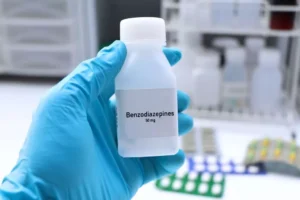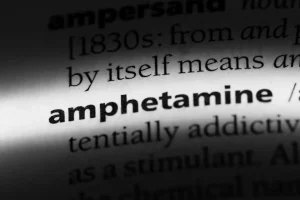
To date, ketamine addiction there remains sparse information about the toxicokinetics of ketamine in the human population. Outpatient treatment programs allow you to go home each day after treatment, although they do expose you to the temptations and triggers of your everyday environment. Furthermore, it tends to slow people down and make their movements rather exaggerated due to a loss of motor coordination.
Addictions

Detox treatments may vary depending on whether patients are using ketamine with other substances. For instance, patients using ketamine with opioids like heroin and fentanyl may receive medications that can relieve opioid withdrawal symptoms like nausea, insomnia, and headaches. No medications have been FDA-approved to treat ketamine addiction, but doctors may prescribe other medications to help treat co-occurring mental health conditions. Hospitalization may sometimes be required to manage serious withdrawal symptoms. Ketamine is favored in certain instances as a sedative because the side effects of ketamine include less respiratory sedation than other anesthetics. However, it’s not usually a primary anesthetic because it can cause hallucinations.

WHAT ARE THE STREET NAMES FOR KETAMINE?
- It is also important to celebrate the small victories along the way and to stay committed to the process of building a healthy, happy life free from addiction.
- Unlike most other anesthetics, ketamine doesn’t depress the circulatory system.
- Comprehensive aftercare planning is also essential for maintaining long-term sobriety and preventing relapse.
- Ketamine is a dissociative anesthetic drug that is abused by some for its hallucinogenic properties.
Ketamine is available as an injectable liquid but is also abused in powder form. Coupled with its ability to produce an out-of-body experience, this drug can cause visual and auditory perceptual changes. While ketamine isn’t the most fatal of substances when used alone, developing an addiction to this drug can greatly affect quality of life. Ketamine addiction can also be caused by the drug’s powerful effects on the brain. Ketamine works by altering the levels of certain chemicals in the brain, including dopamine and serotonin, which can create feelings of euphoria and pleasure. Over time, the brain may become dependent on these chemicals and crave the drug to continue experiencing those sensations.
WHAT ARE THE WITHDRAWAL SYMPTOMS OF KETAMINE?
Ketamine is a powerful dissociative drug that can have severe side effects, both short and long-term. However, it’s important to be aware that, like any potent medication, ketamine has the potential for misuse. Ketamine has a relatively short half-life (the time required for active substances in the body to reduce by half). Within 3 hours, at least half of the active ingredients in ketamine consumed will have left the body. Ketamine can be dangerous, particularly when combined with other substances. It is largely non-fatal when used alone—there is little on record of a lethal dose of this drug in humans.

Until fairly recently, ketamine was classified as a Class C drug, with many professionals unaware of its dangers. In 2014, however, the Misuse of Drugs Act reclassified ketamine, moving it from Class C to a Class B, hoping to send a message that the drug was harmful and not to underestimate its dangers. From all of us at UKAT, we would ask you to remain mindful of the dangers of ketamine use.
After effects
- While the drug is largely eliminated from the body within 14 to 18 hours after the last dose, it can also have longer-term effects.
- If you take too much ketamine you may lose the ability to move and go into a ‘k-hole’.
- Ketamine has a relatively short half-life (the time required for active substances in the body to reduce by half).
- Your loved ones will also notice a dramatic change in your behaviour and appearance, often resulting in strained family relationships.
Treatment for Ketamine addiction can include a range of approaches, both physical and psychological. The goal of treatment is to help individuals overcome their addiction and address any underlying issues that may be contributing to it. Ketamine addiction can also have a significant impact on a person’s mental health, including the development or exacerbation of conditions such as anxiety, depression, and other mood disorders. The drug can also lead to memory problems, difficulty concentrating, and impaired judgment.

Ketamine, originally developed as an anesthetic, has gained notoriety as a recreational drug due to its hallucinogenic properties. Despite its medical benefits, ketamine’s addictive nature has led to widespread misuse and dependency among users. Ketamine addiction, commonly referred to as “Special K,” has devastating consequences on physical health, mental well-being, and social functioning. Drug detox treatments for ketamine can be safely conducted in an inpatient or residential rehab setting where patients can be monitored 24/7 by medical staff who can reduce complications.
- This is because ketamine is illegal and has the potential to be highly dangerous if not administered by a medical professional.
- Ketamine addiction also impacts mental health and cognitive function, significantly impairing daily functioning and quality of life.
- More often than not, your use will be tapered slowly, as abruptly stopping can cause more severe and even fatal symptoms to occur.
- If you’re addicted to ketamine, you can get help at a ketamine rehab center.
- This evaluation involves assessing an individual’s history of Ketamine use, withdrawal symptoms, and the impact of addiction on their life.
How Much Ketamine Does It Take To Fatally Overdose?
- Ketamine is a compound with many potential benefits for the treatment of mental disorders as well as many risks, making it a “hot topic” in the field of psychiatry.
- Because it’s an anesthetic, it can reduce physical sensations and induce temporary paralysis, so the user is awake but unable to move his or her limbs or even talk.
- Ketamine is available as an injectable liquid but is also abused in powder form.
- Individuals struggling with ketamine addiction experience tolerance, withdrawal symptoms, unsuccessful attempts to quit, and continued use despite negative consequences.
- For example, some experts have attributed the higher incidence of ulcerative cystitis in recreational users to the adulterants with which the drug is mixed.
- Those who are surrounded by others who use Ketamine, or who have easy access to the drug, may be more likely to try it and become addicted.
- Ketamine is a dissociative drug used as an anesthetic in veterinary practice.
Ketamine addiction is typically diagnosed through a comprehensive assessment conducted by a medical professional or addiction specialist. This evaluation involves assessing an individual’s history of Ketamine use, withdrawal symptoms, and the impact of addiction on their life. Yes, ketamine can be addictive if used recreationally.2 It is a Schedule III non-narcotic substance, which means it has accepted medical uses but has potential for misuse, dependence, and addiction. To learn more about rehab programs and treatment options, please call American Addiction Centers’ (AAC’s) free helpline at . For more information on getting help with ketamine drug abuse, browse our website to find a treatment center to contact today. The symptoms of a ketamine overdose include seizures, vomiting, chest pain, low blood pressure, unresponsiveness, and difficulty breathing.